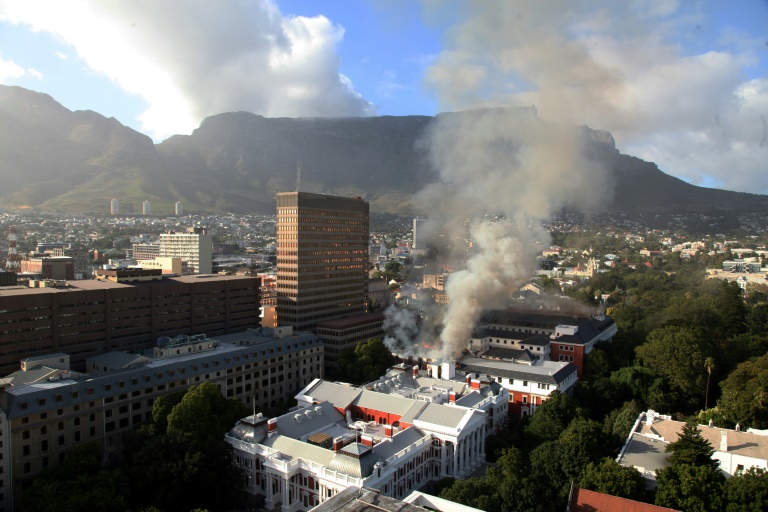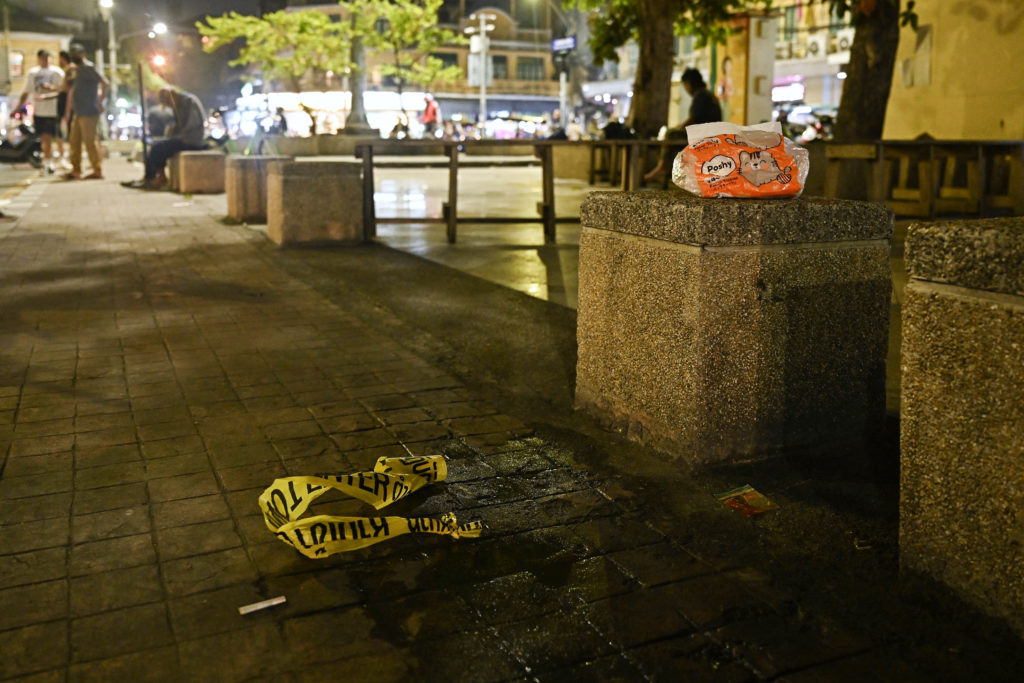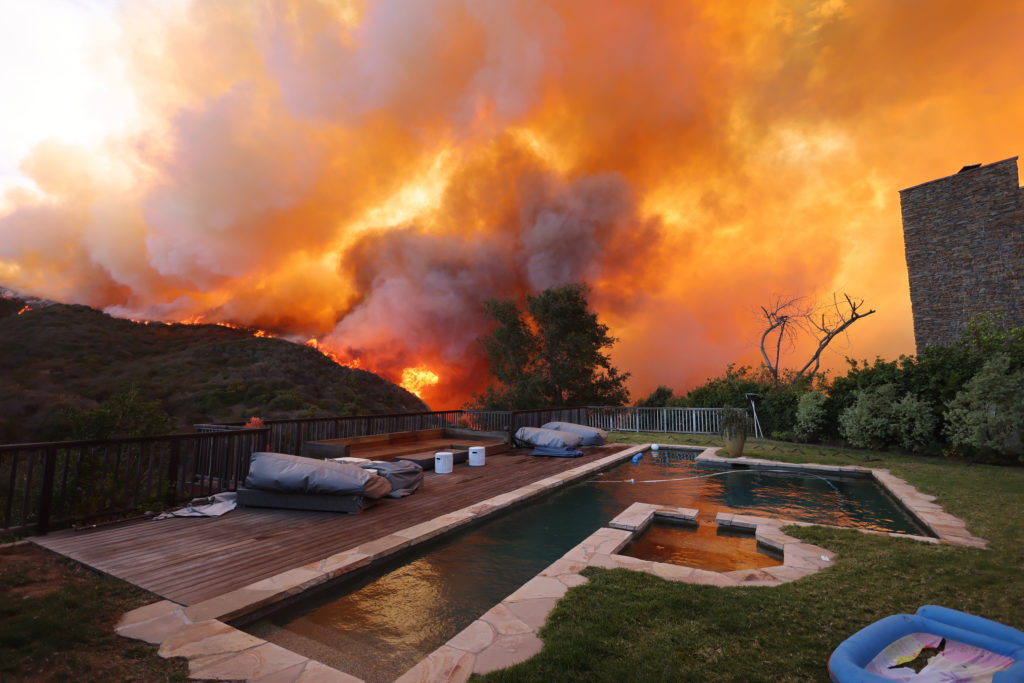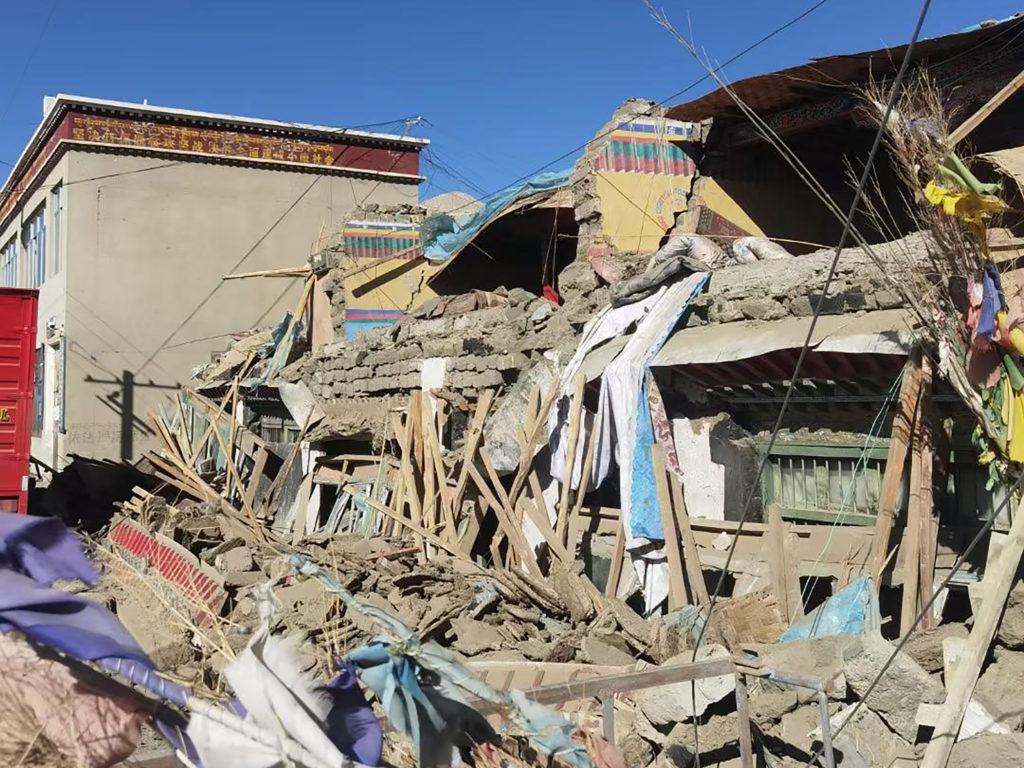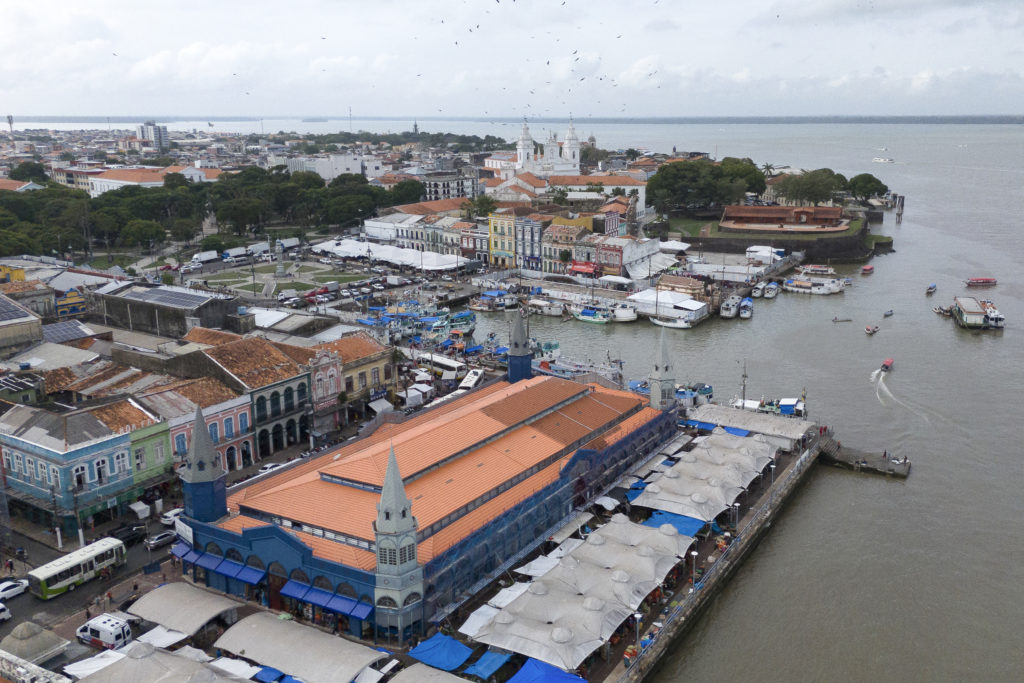A major fire raging Sunday in South Africa’s seat of parliament in Cape Town had not been brought under control by firefighters after more than six hours, with authorities fearing “significant” damage.
Images broadcast on television showed giant flames leaping from the roof of one large building, while several others in the parliament precinct including the National Assembly were enveloped in a thick cloud of black smoke.
The fire was believed to have started in one of the older buildings in the precinct, leading to a security cordon nearby the cathedral where the ashes of anti-apartheid icon Archbishop Desmond Tutu were buried on Sunday.
“The roof has caught fire and the National Assembly building is also on fire,” said JP Smith, Cape Town’s mayoral committee member for safety and security.
No casualties had been reported and the cause of the blaze was not yet known.
Smith said the “fire is not under control and cracks in the walls of the building have been reported”.
He added that the “fire is currently on the third floor — initial reports indicate it started in the office space and is spreading toward the gymnasium”.
“The damage will be significant, especially if it’s not contained soon,” he warned.
Emergency services feared the fire could spread swiftly through the old rooms, which are decorated with thick carpets and curtains.
A team of 30 firefighters who first arrived at the scene battled the flames for several hours before being forced to retreat and call for reinforcements.
Some 80 firefighters were later deployed, some using a crane to spray water on the blaze.
– Second major fire in a year –
The fire broke out at around 0300 GMT on Sunday.
The National Assembly building, which has a red and white facade, is where South Africa’s last apartheid president FW de Klerk declared the end of the brutal white minority regime in 1990.
Concerned Cape Town residents quickly shared pictures of the fire on Twitter.
The area around the fire in the upmarket neighbourhood was quickly cordoned off.
The cordon stretched to a square where flowers were still displayed in front the nearby St. George’s Cathedral, where Tutu’s funeral took place on Saturday.
After a simple, no-frills mass, with a cheap coffin — according to the famously modest Tutu’s instructions — his ashes were interred in the cathedral on Sunday.
Cape Town is home to South Africa’s seat of parliament, including the National Assembly and upper House National Council of Provinces, while the government is based in Pretoria.
The Houses of Parliament in Cape Town consist of three sections, including the original and oldest building that was completed in 1884.
The newer additions — constructed in the 1920s and 1980s — house the National Assembly.
Cape Town suffered a previous fire in April, when a blaze on the famed Table Mountain which overlooks the city spread, ravaging part of The University of Cape Town’s library holding a unique collection of African archives.

